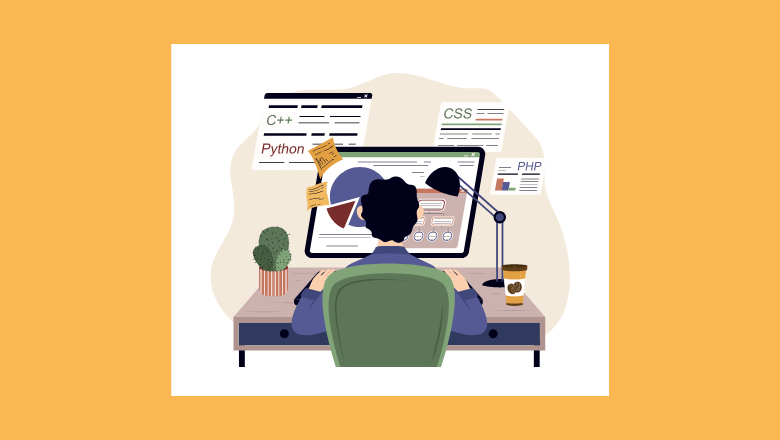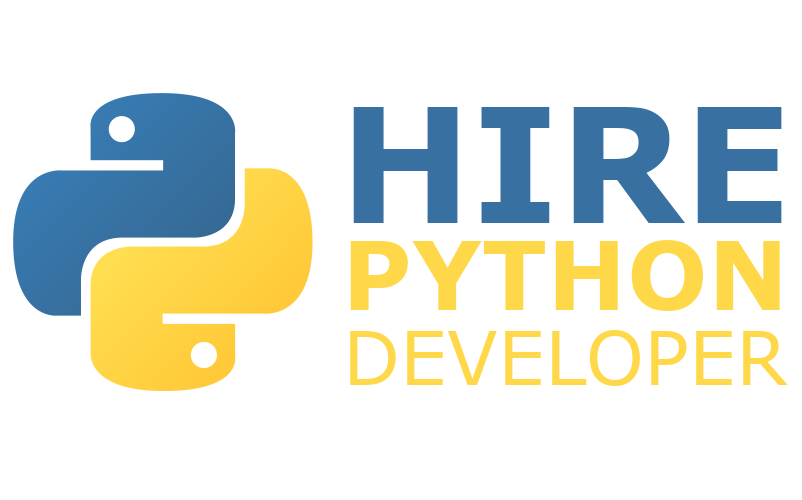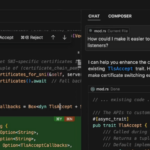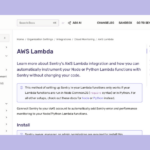
Today I’m going to show you how to hire competent Python Developers.
Python is a programming language widely used across industries and has become increasingly popular recently. It is a top choice for businesses looking to build websites, web applications, data analysis tools, and other software.
Finding a competent Python developer can be challenging. Still, with a clear hiring strategy and effective evaluation techniques, you can build a team of competent developers to help you meet your business goals.
This article will explore the critical steps to how to hire competent Python Developers.
Understanding the Importance of Python Skills in Hiring
Thanks to its numerous applications and popularity among developers, Python is a highly sought-after skill in the tech industry. When hiring competent Python developers, it’s essential to understand the importance of their skills to your business.
Whether you need to build a website, a web application, a data analysis tool, or something else, hiring developers with the right Python skills can help you meet your goals and stay competitive in your industry.
Moreover, Python is an all-around language used in various fields such as finance, healthcare, and education. It is also a popular language for machine learning and artificial intelligence applications.
By hiring developers with Python skills, you can tap into these emerging technologies and gain a competitive edge in your industry. Python is also easy to read and use, resulting in more efficient and effective project development.
Identifying Your Business Needs and Hiring Goals
Before you start the hiring process, you must identify your business needs and hiring goals. What type of project are you working on, and what skills do you need? Are you looking for someone with experience in a particular industry or with a specific set of tools or technologies?
By clarifying your requirements upfront, you can focus your search and narrow your pool of candidates.
Additionally, it’s essential to consider the company culture and values when hiring a Python developer. Do you want a team player who can collaborate effectively with others?
Or do you prefer someone who can work independently and take ownership of their projects?
It’s also essential to think about the long-term goals of your business and how the Python developer will fit into those plans. Considering these factors, you can hire someone with the necessary technical skills that align with your company’s values and culture.
Crafting a Clear Job Description and Requirements

To attract qualified candidates, you must create a clear and specific job description that outlines what you’re looking for in a Python developer. Be sure to include essential qualifications, such as education, experience, and technical skills, as well as a breakdown of the duties and responsibilities of the role.
Additionally, it’s essential to include information about your company’s culture, values, and mission so that candidates can assess if they would be a good fit for your team.
Another essential aspect to consider when crafting a job description is the salary range for the position. A salary range can attract candidates who fit the role well and align with your budget.
It’s also important to be transparent about any benefits or perks that come with the job, such as health insurance, retirement plans, or flexible work arrangements.
By including this information in the job description, you can attract candidates who are qualified and excited about the opportunity to work for your company.
Sourcing Candidates through Various Channels
Once you have a clear job description and requirements, it’s time to start sourcing candidates. You can find candidates through various channels, such as job boards, social media, professional networking sites, and employee referrals.
Attending industry conferences and events to connect with potential candidates in person is also a good practice.
Another effective way to source candidates is by partnering with recruitment agencies or headhunters. These professionals have access to a broader pool of candidates. They can help you find the right fit for your organization.
Consider creating a talent pipeline by building relationships with potential candidates who may not be actively looking for a job but could be interested in future opportunities.
Evaluating Candidates’ Technical Skills and Experience
When it comes to evaluating candidates, technical skills and experience are crucial. Be sure to thoroughly assess candidates’ programming abilities, such as their knowledge of Python libraries, frameworks, and tools.
Ask candidates to complete coding challenges or technical projects to demonstrate their expertise and evaluate their problem-solving skills.
You can also check their GitHub repositories or other code samples to review their work and assess their coding style and best practices.
Another essential aspect to consider when evaluating candidates’ technical skills and experience is their ability to work collaboratively in a team. Look for candidates with experience working on group projects or contributing to open-source projects.
The ability to work with others, communicate effectively, and follow best practices.
Additionally, consider their experience with project management tools such as Jira or Trello, which can indicate their ability to prioritize tasks and meet deadlines.
Assessing Candidates’ Problem-Solving and Critical-Thinking Abilities
A competent Python developer should possess strong problem-solving and critical-thinking skills, be able to analyze complex systems and data, and come up with innovative solutions to tackle challenging problems.
During interviews, consider asking candidates behavioral questions that can help you assess their critical-thinking skills, such as how they have dealt with complex technical challenges in the past.
Another effective way to assess a candidate’s problem-solving and critical-thinking abilities is to give them a coding challenge or problem to solve. You can do this during the interview or as a homework assignment.
By observing how the candidate approaches the problem, breaks it down into smaller parts, and comes up with a solution, you can gain valuable insights into their problem-solving skills.
Additionally, you can evaluate the quality and efficiency of their code, which can be a good indicator of their technical abilities.
Reviewing Candidates’ Previous Projects and Code Samples

Another way to evaluate candidates’ skills and expertise is to review their previous projects and code samples. You can learn about their coding style, best practices, and how well they work with others.
When reviewing code samples, look for examples of clean, readable code and well-documented code that follows industry best practices.
It’s also important to consider the complexity and scope of the projects the candidate has worked on. Reviewing their previous projects can give you an idea of their ability to handle large-scale projects and problem-solving skills.
Additionally, suppose the candidate has worked on projects similar to the ones your company works on. In that case, it can indicate their ability to adapt and contribute to your team.
Conducting Effective Interview Questions and Techniques
During the interview process, asking the right questions is essential to ensure you are assessing candidates effectively. Ask open-ended questions to help evaluate candidates’ communication, teamwork, and problem-solving skills.
Be sure to provide candidates ample time to ask questions about the role and the company, as it shows their level of interest and engagement.
Making the Best Hiring Decision for Your Team
Finally, when you’ve gone through these steps and assessed each candidate, it’s time to make the best hiring decision for your team.
Consider not only technical skills but also cultural fit and soft skills. By hiring competent Python developers who align with your company goals and culture, you can build a strong and productive team to help you achieve your business objectives.
Lydia is a seasoned technical author, well-versed in the intricacies of software development and a dedicated practitioner of Python. With a career spanning 16 years, Lydia has made significant contributions as a programmer and scrum master at renowned companies such as Thompsons, Deloit, and The GAP, where they have been instrumental in delivering successful projects.
A proud alumnus of Duke University, Lydia pursued a degree in Computer Science, solidifying their academic foundation. At Duke, they gained a comprehensive understanding of computer systems, algorithms, and programming languages, which paved the way for their career in the ever-evolving field of software development.
As a technical author, Lydia remains committed to fostering knowledge sharing and promoting the growth of the computer science community. Their dedication to Python development, coupled with their expertise as a programmer and scrum master, positions them as a trusted source of guidance and insight. Through their publications and engagements, Lydia continues to inspire and empower fellow technologists, leaving an indelible mark on the world of scientific computer science.







